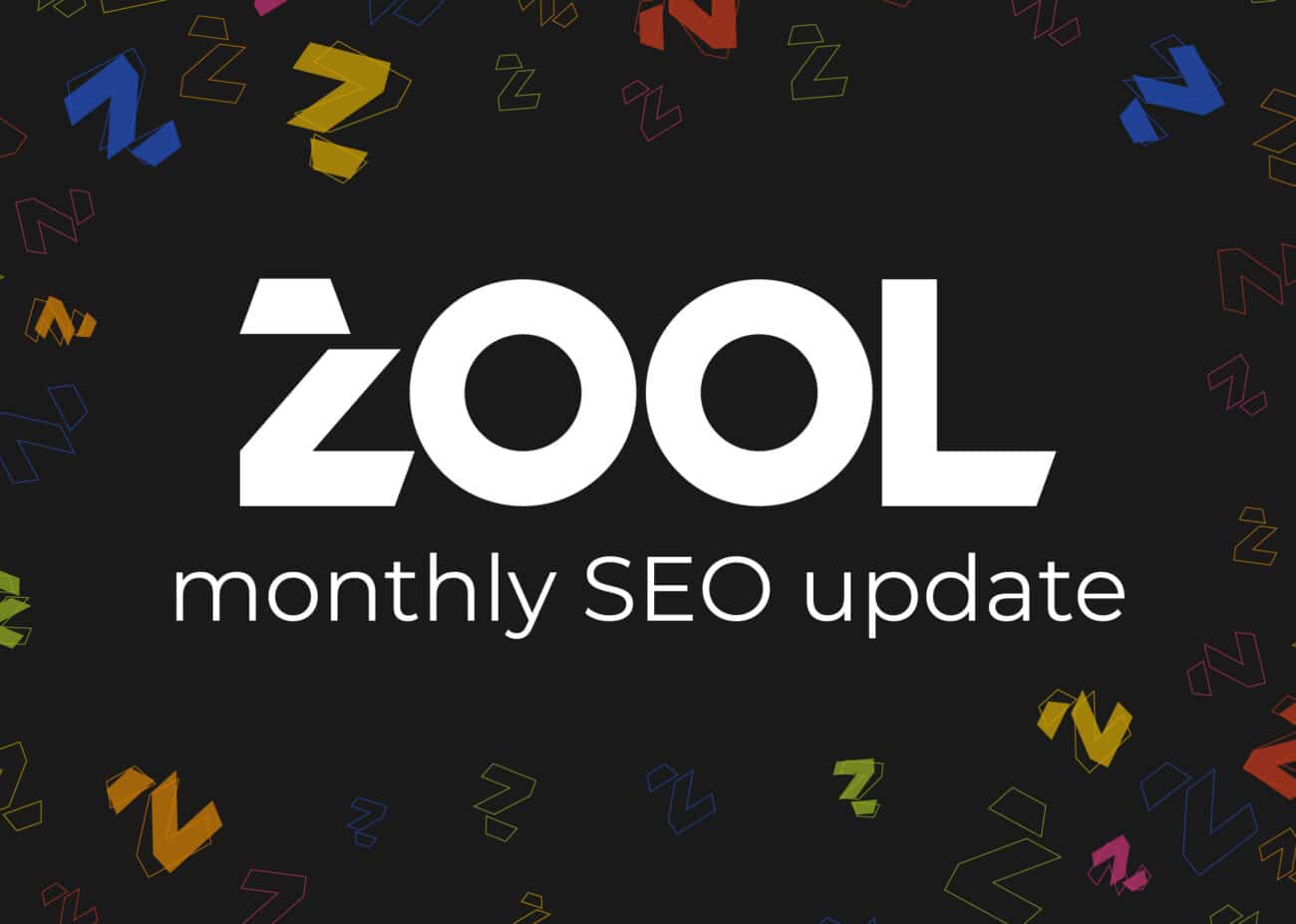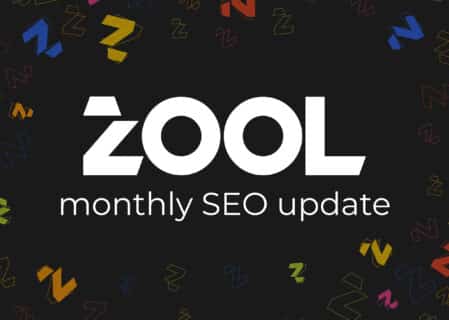Array
It’s time for a round-up of the monthly SEO news again, and again there is a lot around AI (which should come as no surprise).
Google News
- Google Trends has had a makeover. One of the first tools that Google released about 25 years ago, and they haven’t touched it since! They have recently given Google Trends an overhaul, which is excellent. A valuable tool for keyword research to help visualise market trends, emerging trends, geographical trends, and what’s growing and what’s shrinking. Slightly different tool to conventional SEO keyword research as it doesn’t look at search volume as such; instead, it looks at how the market is changing, where demand is rising, and so on, so it can point you in the right direction for your long-term strategy. It’s an absolute gold mine for user behaviour and intent information.
- Google Search now lets you save your favourite brands. Google announced this last year, but it only has started being rolled out now. This new feature allows you to save your favourite brands for Google to serve you more relevant search results. The SEO community aren’t sure about this feature; on the one hand, it seems a good idea as you will be served valuable results, but on the other hand, it could prevent you from discovering new brands. It will be interesting to see, as well, whether the large brands are featured the most or whether Google will promote smaller brands as well.
- Google now recommends we nest structured data. Structured data and schema.org are tools we use as part of an SEO campaign, as they help Google to understand better what each page on your website is about. It’s a way of explaining the relationship between all the content on each page to Google. It’s something Google has not discussed much in the past, but this month they have updated some of their technical documentation to include best practices, including recommending that structured data be combined rather than creating multiple scripts. This helps avoid potential conflicts and errors and allows Google to understand better the context and relevance of the structured data implemented.
- Google Bard is slowly rolling out. Bard is Google’s response to ChatGPT, and it is now available to US and UK users, but many in the SEO community who have tried it are disappointed. Google knows this, and they are almost apologetic about it, saying that it isn’t meant to replace search they are just experimenting with it.
Bing News
- Bing has added Bing Chat answers to search results. Bing Chat is Bing’s AI tool, and they are trying to use it to transform search and get ahead in the AI race. They have now added Bing Chat answers and more multimedia to their search results pages to try and influence people to use Bing rather than Google – but the market share doesn’t seem to have changed much. Regarding AI, it is 100 times more expensive to serve a chat response than a typical search response, which may explain Google’s reluctance to invest in it!
- Bing Chat now allows users to create images with OpenAI’s DALL-E tool. For example, someone searching for living room furniture can generate room mock-ups. The SEO community sees it as a valuable tool for specific categories but doesn’t think it will transform search as it doesn’t seem to be how most users want to interact with search engines.
- Bing Webmaster Tools are introducing new metrics around AI. One area where Bing has stolen a march on Google is in the area of metrics around AI. They have announced that reporting and tools around the new Bing Chat feature and a new Index coverage report will be added to Bing Webmaster Tools in the coming months. So we will be able to access metrics on how people use Bing Chat and how this impacts rankings and click-throughs, etc.
Tech News
- Research has shown that 16 companies dominate Google’s search results, which is unsurprising as they can use their scale to win bigger than smaller companies. However, smaller companies can be more agile, faster and smarter if they target niches.
- Chat-GPT 4 is now released, which can process images and is better at problem-solving and creative tasks. It is also able to process more text than previously. It has now been added to more mainstream products such as Duolingo and Bing.
SEO & Social News Round-Up for March 2023
Digital SEO / Apr 11, 2023
It’s time for a round-up of the monthly SEO news again, and again there is a lot around AI (which should come as no surprise).
Google News
- Google Trends has had a makeover. One of the first tools that Google released about 25 years ago, and they haven’t touched it since! They have recently given Google Trends an overhaul, which is excellent. A valuable tool for keyword research to help visualise market trends, emerging trends, geographical trends, and what’s growing and what’s shrinking. Slightly different tool to conventional SEO keyword research as it doesn’t look at search volume as such; instead, it looks at how the market is changing, where demand is rising, and so on, so it can point you in the right direction for your long-term strategy. It’s an absolute gold mine for user behaviour and intent information.
- Google Search now lets you save your favourite brands. Google announced this last year, but it only has started being rolled out now. This new feature allows you to save your favourite brands for Google to serve you more relevant search results. The SEO community aren’t sure about this feature; on the one hand, it seems a good idea as you will be served valuable results, but on the other hand, it could prevent you from discovering new brands. It will be interesting to see, as well, whether the large brands are featured the most or whether Google will promote smaller brands as well.
- Google now recommends we nest structured data. Structured data and schema.org are tools we use as part of an SEO campaign, as they help Google to understand better what each page on your website is about. It’s a way of explaining the relationship between all the content on each page to Google. It’s something Google has not discussed much in the past, but this month they have updated some of their technical documentation to include best practices, including recommending that structured data be combined rather than creating multiple scripts. This helps avoid potential conflicts and errors and allows Google to understand better the context and relevance of the structured data implemented.
- Google Bard is slowly rolling out. Bard is Google’s response to ChatGPT, and it is now available to US and UK users, but many in the SEO community who have tried it are disappointed. Google knows this, and they are almost apologetic about it, saying that it isn’t meant to replace search they are just experimenting with it.
Bing News
- Bing has added Bing Chat answers to search results. Bing Chat is Bing’s AI tool, and they are trying to use it to transform search and get ahead in the AI race. They have now added Bing Chat answers and more multimedia to their search results pages to try and influence people to use Bing rather than Google – but the market share doesn’t seem to have changed much. Regarding AI, it is 100 times more expensive to serve a chat response than a typical search response, which may explain Google’s reluctance to invest in it!
- Bing Chat now allows users to create images with OpenAI’s DALL-E tool. For example, someone searching for living room furniture can generate room mock-ups. The SEO community sees it as a valuable tool for specific categories but doesn’t think it will transform search as it doesn’t seem to be how most users want to interact with search engines.
- Bing Webmaster Tools are introducing new metrics around AI. One area where Bing has stolen a march on Google is in the area of metrics around AI. They have announced that reporting and tools around the new Bing Chat feature and a new Index coverage report will be added to Bing Webmaster Tools in the coming months. So we will be able to access metrics on how people use Bing Chat and how this impacts rankings and click-throughs, etc.
Tech News
- Research has shown that 16 companies dominate Google’s search results, which is unsurprising as they can use their scale to win bigger than smaller companies. However, smaller companies can be more agile, faster and smarter if they target niches.
- Chat-GPT 4 is now released, which can process images and is better at problem-solving and creative tasks. It is also able to process more text than previously. It has now been added to more mainstream products such as Duolingo and Bing.

